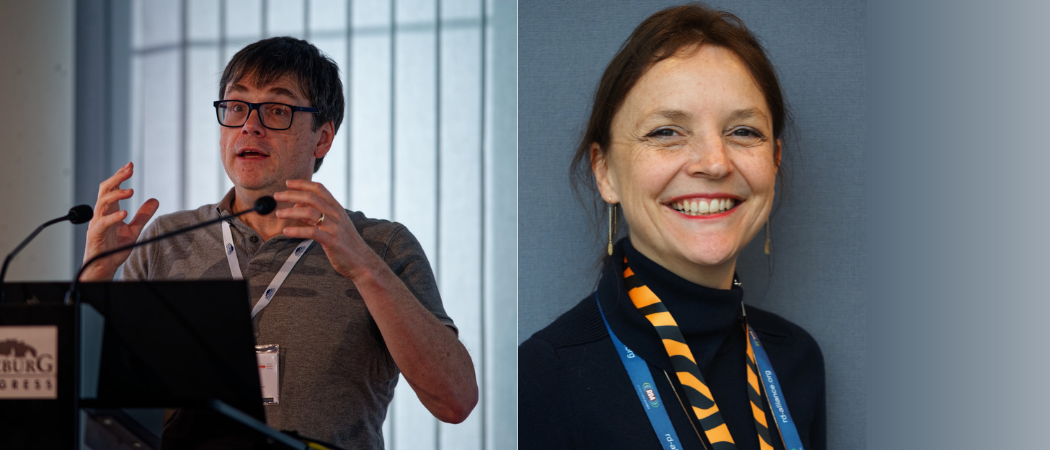Research Data Alliance grants help the European Open Science Cloud serve the needs of research communities and facilitate cultural shift towards knowledge sharing

To date, the Research Data Alliance (RDA Europe) has distributed €1 million to engage European researchers to engage with the European Open Science Cloud (EOSC). The funds have been distributed through the RDA Open Calls programme, a collaboration with the European Open Science Cloud Future initiative, which was launched in 2021.
While EOSC focuses on the development of specific tools and resources, the RDA ensures that they meet the needs of the community and researchers. Najla Rettberg, project manager at the RDA, which primarily serves as a platform for developing data sharing solutions and knowledge sharing, stresses the importance of evaluating user needs and how they will interact with technical solutions before developing them.
“EOSC is at times not easy to understand, because it’s relatively new and has a different meaning for different people,” Rettberg says. “The RDA Open Call programme helps us understand how people interpret and engage with EOSC.”
To engage researchers effectively, the RDA leverages its global network. “Our community is diverse and we believe that this diversity is crucial, so we targeted various groups of users and research groups and they have leveraged the global knowledge and collaborated around Open Science practices at the European level,” Rettberg adds.
Engaging underrepresented communities
One of RDA’s priorities is to involve underrepresented research communities, among which, adhering to the principles of data findability, accessibility, interoperability, and reusability (FAIR) can be a challenge.
According to Rettberg, the primary barrier is a lack of time and incentives. “The RDA grants allowed them the time to look into this topic and take it back to the community,” she says. Through the open call programme, the RDA has handed out nearly 40 awards in more than 20 countries across Europe. These awards gave the recipients the scope to leverage RDA’s structures to engage around open science-related topics, and discuss the incentives and barriers.
In line with the RDA's objective to help underrepresented communities, Hugh Shanahan, professor of open science at Royal Holloway, University of London, aims to prepare a generation of researchers for the digital revolution, with the priority to deliver training to low and middle-income countries. Shanahan, one of the co-chairs of the CODATA-RDA Schools of Research Data Science, an educational programme providing a broad, but shallow, introduction to a variety of subjects related to dealing with data.
This year, these schools were held in three different locations: South Africa, Italy and the United States, with a particular emphasis on minority-serving institutions in the United States. As a completely volunteer-based network, the CODATA-RDA Schools of Research Data Science now aims to scale up operations to increase the number of instructors and run multiple schools in a year, ideally, once a month.
Shanahan stresses that the funding has enabled improvements in back-end operations, such as ensuring that all materials are properly annotated. "Furthermore, our partnership with RDA has provided us with administrative support and long-term strategic advice," he adds. According to Shanahan, providing training is key to the much-needed cultural change towards knowledge sharing. "Research evolves through a network of people; it's deeply cooperative and relies on both technical and human infrastructure," he says.
Another grantee, Marina Razmadze, deputy director at the Institute for Scientific and Technical Information – TECHINFORMI, has been working on fostering collaboration between agricultural communities in Georgia, Armenia, and Azerbaijan through the Improving Global Agricultural Data (IGAD) Community of Practice.
As a result, representatives from Armenia and Azerbaijan's scientific communities met online for the first time in years. Establishing communication between these communities was challenging due to political circumstances, but thanks to the RDA, the ice has broken.
Razmadze stresses that to make the EOSC and its resources more understandable and implementable in diverse communities, it's crucial to consider country-specific characteristics and regulations, as well as how they produce, monitor and manage data. Additionally, communities need more resource-specific training and easy access to the tools.
A network that is here to stay
While EOSC delivers technology, the RDA is working on establishing social networks and communities of practice around EOSC. As a result, various cross-disciplinary and cross-sectorial projects have emerged. “Researchers learn from each other’s experience and the wonderful thing is that unexpected collaborations are formed,” Rettberg explains. “We have seen surprises in how researchers developed cross-disciplinary collaborations and used each other’s tools.”
In addition, the grants have played a crucial role in engaging six “widening countries”, which have lower R&D spending than the EU average, which is a key priority for EOSC. Specifically, the funding has helped these countries to improve repositories and data sharing techniques.
According to Rettberg, the RDA has facilitated a network that is here to stay even after the funding for EOSC Future concludes. “RDA serves as a logical home for various communities to continue their discussions.” she concludes.
More about the programme can be found on the RDA website. To view the Projects funded and Ambassadors see here
This article has received funding from the European Union's Horizon 2020 research and innovation programme under grant agreement No 101017536 and is supported by the EOSC Future through the RDA, Open Call mechanism.

 A unique international forum for public research organisations and companies to connect their external engagement with strategic interests around their R&D system.
A unique international forum for public research organisations and companies to connect their external engagement with strategic interests around their R&D system.